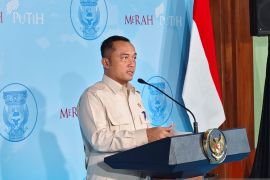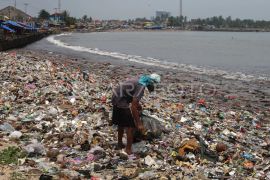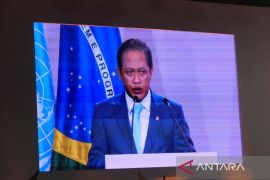"The impact certainly would not come all of a sudden, but it would be a process of gradual development", an economist of ADB Priasto Aji said here on Tuesday.
In two success months last week, Bank Indonesia cut again its BI 7-day Reverse Repo Rate by 25 basis points from 4.5 percent to 4.25 percent, after a cut from 4.75 percent to 4.5 percent last month.
Priasto said the cut in reference interest rate could support adjustment in bank lending rate although it would also take time.
In addition, an increase of up to 10 percent in lending rate could be reached in 2017 with other policies giving flexibility for banks in managing liquidity, he said.
He said the central bank could yet slash its reference interest rate toward the end of the year considering the risk of normalization in the policy of The Fed (US Central Bank) and inflation which is expected to continue to be under control until 20187.
"Rate cut is still possible on domestic condition with inflation well under control," he said.
The cut in BI 7-day Reverse Repo Rate was followed with a 25 basis point cut in the interest rates on Deposit Facility to 3.5 percent and on Lending Facility to 5 percent effective as from 25 September 2017.
"The rate cut was consistent with the realization and estimate of low inflation in 2017 and prediction that inflation, as well as current account deficit would remain under control, safe within expectation in 2018 and 2019," head of the Monetary and Economic Policy Department of the Central Bank Dody Budi Waluyo, said.
Bank Indonesia said it would continue to coordinate with the government in policy to maintain macro economic stability and strengthen the momentum of economic recovery.
In a report Asian Development Outlook 2017, ADB chief representative for Indonesia Winfried Wickelin said ADB noted positive contribution of investment and exports to Indonesias economic growth in the first half of 2017.
The countrys recorded a 5.01 percent growth in its Gross Domestic Product (GDP) overshooting the target of 5 percent set previously by ADB, Wicklein said.
"Indonesias economy remains strong with growth this year expected to be higher despite global uncertainty, he said.
He also spoke favorably about the government policy of focusing mainly on infrastructure development, saying with larger spending for public infrastructure and better investment climate , economic expansion would likely continue until next year.
Government spending is expected to jack up economic growth in the second half of the year, he added.(*)
Editor: Heru Purwanto
Copyright © ANTARA 2017











